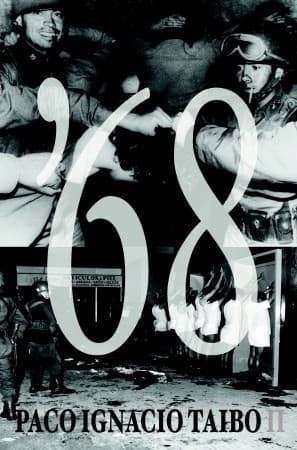
Book Review Summary: '68
Introduction
"68" by Paco Ignacio Taibo II is a powerful and poignant book that delves into the tragic events of the 1968 student massacre in Tlatelolco Square, Mexico. Through provocative and analytical prose, Taibo sheds light on the unresolved massacre and the lack of accountability for the perpetrators. This article will provide an overview of the book, introduce the author, analyze common opinions and feelings expressed by readers, and summarize the reasons for recommending this compelling work.
About Paco Ignacio Taibo II
Paco Ignacio Taibo II, born Francisco Ignacio Taibo Mahojo, is a renowned Mexican writer and novelist. He is the son of the late journalist Paco Ignacio Taibo I, who was also a prominent figure in Mexican literature. Taibo II has made a significant impact in the literary world with his engaging storytelling and insightful perspectives on Mexican history and politics. His works often explore themes of social justice and political activism, making him a prominent voice in contemporary Mexican literature.
Analysis of Views
- Personal and Anecdotal Account: Readers appreciate Taibo's ability to blend personal experiences with broader historical context. The book offers a unique perspective, combining personal memories with a national perspective, making it relatable and engaging for readers.
- Poetic and Heart-Wrenching: Many readers found the book to be dreamy and heart-wrenching, evoking emotions of nostalgia and empathy. The vivid descriptions and personal vignettes transport readers into the tumultuous atmosphere of 1968, making the events feel tangible and impactful.
- Lack of Closure: The unresolved nature of the Tlatelolco massacre resonated with readers. The lack of justice for the victims and the government's denial of responsibility added depth to the narrative, highlighting the ongoing struggle for truth and accountability in Mexican history.
- Spanish Language Edition: Some readers praised the Spanish language edition of the book, noting that it provided an opportunity to learn new words and improve their language skills. The book's literary style and rich vocabulary made it an enjoyable reading experience for those with advanced Spanish proficiency.
- Historical Significance: The 1968 student movement in Mexico played a crucial role in shaping modern Mexican history. Readers appreciated Taibo's ability to convey the significance of this event and its lasting impact on Mexican society, politics, and culture.
Reasons for Recommendation
- Personal Connection: Readers found "68" to be a compelling personal account that resonated with their own experiences or connections to revolutionary moments. The book's ability to evoke emotions and provide a relatable perspective made it a recommended read for those seeking a deeper understanding of Mexican history.
- Analytical Insight: Taibo's analytical approach to history adds depth and nuance to the narrative. The book offers a balanced blend of anecdotal stories and historical analysis, providing readers with a comprehensive understanding of the events surrounding the 1968 student massacre in Tlatelolco Square.
- Literary Style: Taibo's writing style, characterized by poetic descriptions and evocative imagery, was praised by readers. The literary quality of the book elevates it beyond a mere historical account, making it a standout work of literature that transcends its subject matter.
- Importance of Historical Memory: "68" serves as a reminder of the importance of preserving historical memory and holding those responsible for atrocities accountable. The book's exploration of unresolved traumas and the lack of justice highlights the ongoing struggle for truth and reconciliation in Mexican society.
Conclusion
"68" by Paco Ignacio Taibo II is a powerful and poignant book that delves into the tragic events surrounding the 1968 student massacre in Tlatelolco Square, Mexico. Through provocative prose and personal accounts, Taibo sheds light on the unresolved massacre and its impact on Mexican society. Readers appreciate the book's ability to evoke emotions, provide historical context, and explore themes of social justice and political activism. "68" is recommended for those seeking a deeper understanding of Mexican history, as well as those who appreciate engaging storytelling and literary quality in their reading experiences.